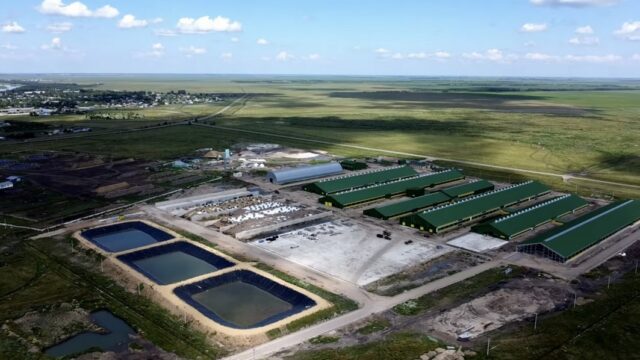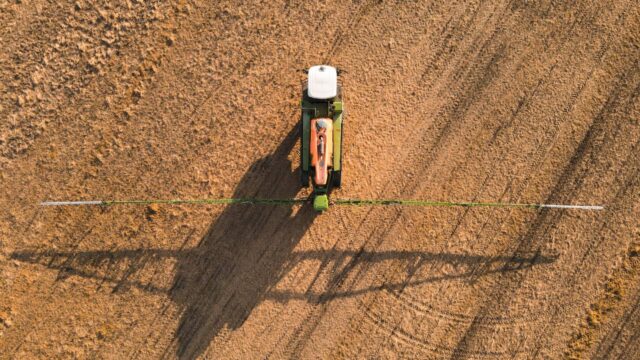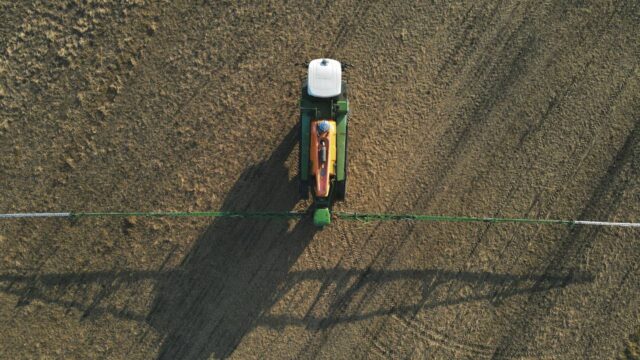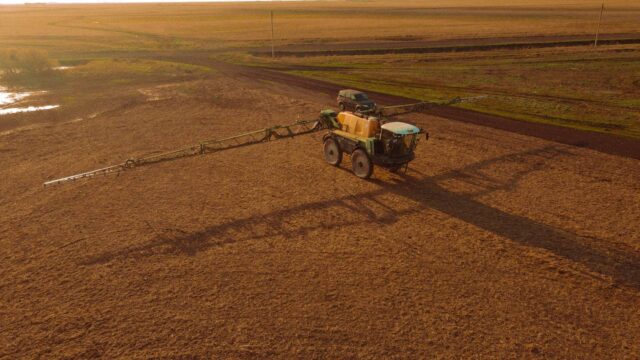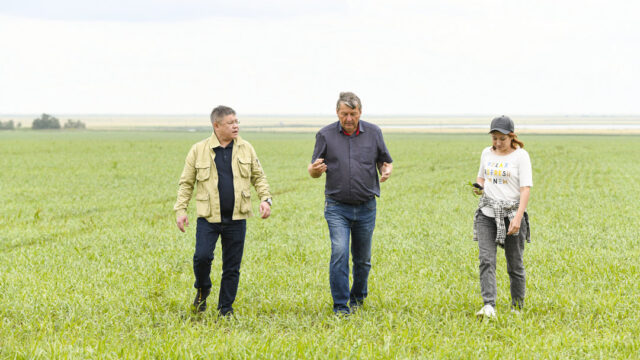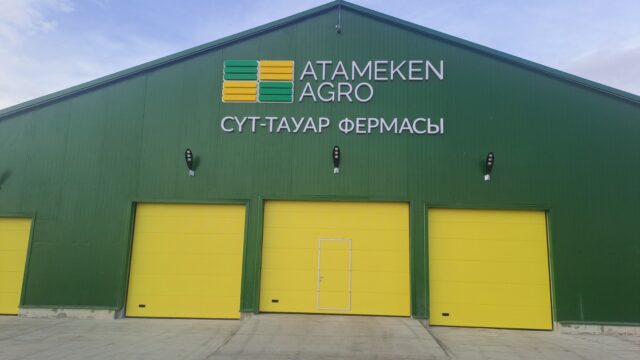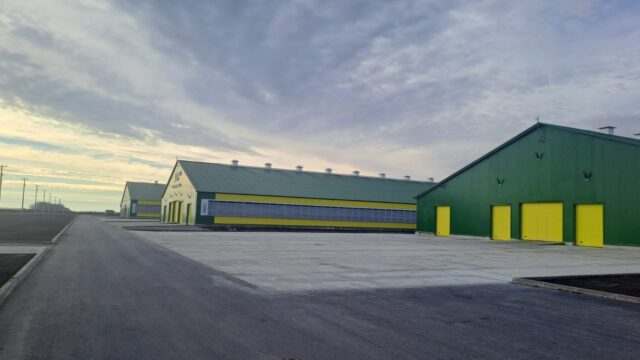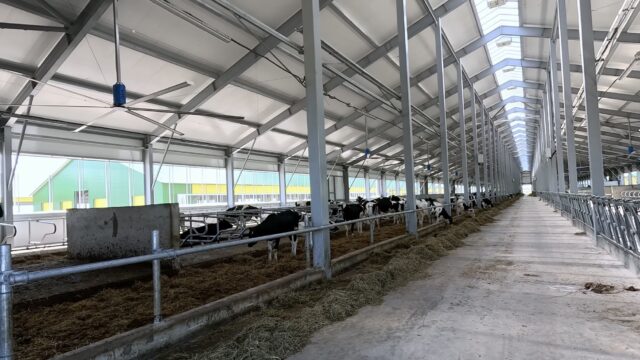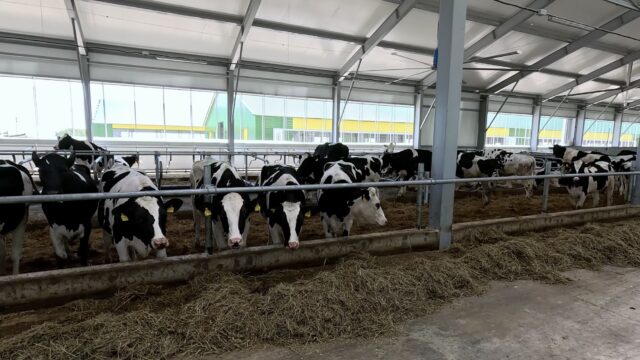Agriculture on the Path to Sustainable Growth: How Found Supports the Sector from Debt Restructuring to Developmen
Over the past few years, 32 agricultural companies have managed to avoid bankruptcy thanks to debt restructuring carried out by the Problem Loan Fund. Serious economic challenges and devastating climate shocks made the agricultural sector seriously worried. However, today many of them have not only preserved their assets but have also managed to increase their profits. After visiting several agricultural enterprises in the Akmola region, correspondents of Vecherka found out what role was played in this by the specially created National Financial Institution – the Problem Loan Fund.
It is worth noting that targeted support for the agricultural sector began back in 2019, when the Fund carried out a large-scale debt restructuring of 25 major bank borrowers. Part of the non-performing loan portfolio of JSC Tsesnabank was purchased. These measures made it possible to significantly reduce the debt burden of enterprises by lowering the interest rate on loans, extending repayment terms, and providing other concessions, thanks to which they were able to carry out spring fieldwork on time and stabilize their financial position. As a result, not only were thousands of jobs preserved, but also strategic agricultural assets – arable land, pastures, grain elevators, grain receiving stations, machinery, and much more.
In 2023, the agricultural sector faced yet another serious natural challenge – a drought during the growing season and heavy rains during the harvesting campaign caused enormous damage to agricultural producers and sparked wide public outcry. The problem was immediately reflected in the President’s Address. Acting on the instructions of the Head of State and in cooperation with the relevant authorities, the Fund promptly took measures to support farmers: the terms for debt repayment were revised, and payment deferrals were granted. This made it possible to maintain the stability of farms and ensure the continuation of production activities, noted the advisor…
Inset: JSC Problem Loan Fund was established in 2012 to assist banks in “cleaning” their balance sheets of non-performing loans in order to improve the quality of the loan portfolio. From 2012 to 2017, the Fund was managed by the National Bank of the Republic of Kazakhstan. Since 2017, it has been under the jurisdiction of the Ministry of Finance of the Republic of Kazakhstan. The sole shareholder of the Fund is the Government of the Republic of Kazakhstan.
Debt Burden Reduced – Volumes Increased
An example of the main regional grain elevator, located in the village of Zhaltir in the Akmola region, shows that in a crisis situation it has become quite possible to launch production processes. This historic facility became the first stop on our tour.
Back in the days of the Virgin Lands campaign, the Zhaltir Elevator, founded in 1939, received grain from all over the region. Thousands of volunteers worked in Kazakhstan’s fields at that time. It was considered one of the largest storages of strategic reserves. Later, the old elevator became part of the Tsesna-Astyk holding. Decades later, it continued to operate, practically without reducing volumes, up until 2019. Under the pressure of rapidly changing situations in foreign markets, the financial stability of many agricultural producers began to gradually deteriorate. JSC Problem Loan Fund purchased the main share of the loan portfolio of these enterprises, giving them the opportunity to restructure their bank loans.
As a result of the measures taken, the elevator was transferred to an investor – LLP Qaz-Qar Ltd, which assumed obligations for its financial recovery and the revival of production. Today, the storage facilities contain 120,000 tons of grain, including 70,000 tons in elevator capacity and 50,000 tons in warehouse storage. The enterprise has 22 grain warehouses, 17 of which are for wheat storage, 4 for barley, and one designated for grain waste. The total capacity of five grain dryers is 222 tons per hour, and three BIS-100 cleaning machines operate in almost continuous production. The elevator can receive up to 3,500 tons of grain per day, with daily shipments of up to 2,500 tons by rail and up to 1,000 tons by road.
The enterprise plans to carry out technical modernization and launch automated processes for better quality results. To date, the improved debt obligations of the enterprise have made it possible to avoid major financial losses, preserve jobs for the local population, and even turn a profit.
Thanks to the Fund and the measures it implemented, a number of enterprises managed to reduce their debt burden to second-tier banks, JSC “Prodcorporation,” and other creditors. Tax arrears were repaid, and as a result, 17 out of 32 companies ended the year with a profit; thanks to debt restructuring, 15 avoided bankruptcy and maintained their operational activities. A total of 5,843 specialists retained their jobs, and to secure personnel in rural areas, service housing worth over 70 million tenge was built. Wages for workers were increased by up to 50%, and the best employees received bonuses, travel vouchers, and gifts. Social support is also not overlooked – for example, LLP Imran Agro annually allocates over 3 million tenge for school meals, funds are provided for repairs of educational institutions in rural areas, and for organizing various events, a representative of the Problem Loan Fund shared.
Systematic work, launched in previous years, continues to bring stable results. Thus, this year, spring fieldwork began on time and was carried out as planned. Within the framework of the sowing campaign, about 850 thousand hectares of agricultural land were sown, which allowed agricultural producers to ensure the continuity of the production cycle.
Restored a Destroyed Farm
One such farm is located in the Atbasar district – in the village of Telman. On fields covering about 15 thousand hectares, workers of LLP Karazhar Agro-2019 annually sow grain and leguminous crops. The harvest volume sometimes reaches 50 thousand tons – mainly wheat, barley, lentils, and peas. More than 60% of the products are exported, with the main destinations being the countries of Central Asia, Afghanistan, China, Turkey, Iran, and even Italy. Kazakh grain crops are especially valued in China – predominantly durum wheat varieties. The products are known for their high quality and protein content, as well as other beneficial properties, making them in demand for flour production.
“After the previous management, our farm came to us in a half-ruined state. We inherited debts and an unprofitable farm. Fortunately, the Problem Loan Fund provided support measures to repay bank loans, otherwise we would have had to take out a bank loan at high interest rates. Today, after several years, we can call ourselves a profitable enterprise. We have now gradually begun to restore the farm, and plan to build a feed base for breeding pedigree cattle, a motor depot, and storage facilities. To rebuild individual facilities, each requires from 100 to 200 million tenge. We believe we will begin their implementation in the near future. In addition, we strive to benefit the village and its residents. On our own, we have built a bathhouse, a sports center, and a café for the residents, and now we are helping to repair the local school,” said the director of LLP Karazhar Agro-2019, Valery Petrov.
Today, their property includes ten seeding complexes and combines, four sprayers, and other agricultural machinery. According to the agronomist, if it were not for saiga raids and weather surprises, the agricultural sector would have developed many times faster. One of the major difficulties in agriculture is the shortage of qualified personnel. There is a lack of engineers, agronomists, livestock specialists, combine operators, and even general workers.
“Today, the issue of producing environmentally clean products – without pesticides and other chemicals – is an urgent one. Agricultural laboratories should consider creating such preparations that would avoid heavy weed treatment. For example, we try to grow oats and barley without chemicals, because they are used as feed for domestic livestock,” stressed Valery Petrov.
According to the Problem Loan Fund, last year more than 806 thousand hectares were sown with wheat, flax, barley, lentils, sunflower, and other crops. More than 1.85 million tons of harvest worth over 100 billion tenge were collected, strengthening the domestic market and maintaining export potential. Work was carried out to attract investment into agriculture. Seeds, plant protection products, and fuel and lubricants were purchased. Construction of a dairy farm in the North Kazakhstan region for 1,300 head of cattle was completed (investment – 11.7 billion tenge, 100 new jobs created). For 2024–2025, revenue amounted to 1.2 billion tenge, the Fund representative reported.
The agricultural machinery fleet was renewed and repaired for more than 2 billion tenge, including 1.2 billion tenge under GC Atameken-Agro. Fixed assets were acquired, and production and social infrastructure facilities were built: offices, dormitories, canteens, bakeries, bathhouses, boiler houses, and others – worth more than 2 billion tenge. Last year, borrower enterprises paid 6.9 billion tenge in taxes and social contributions to the budget.
Today, JSC Problem Loan Fund continues to fulfill its strategic mission – to assist in financial recovery, ensure the stability of real-sector enterprises, and strengthen the country’s food security. Plans also include further development of mechanisms for interaction with private investors, improvement of asset disposal procedures, and introduction of new borrower support tools. The borrowers, in turn, note that the Fund remains the most important instrument of their financial stability, making a significant contribution to economic development, citizen support, and increasing the transparency of the country’s financial sector.




